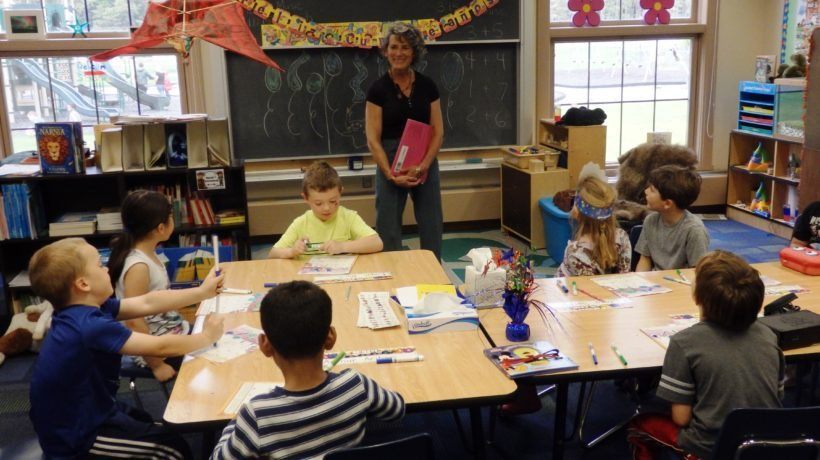How To Increase Student Success Through Flexible Learning Environments
As the world evolves, so does our understanding of education and the spaces in which students learn. While strict, quiet classrooms were once seen as the pinnacle of appropriate education, today, attitudes are beginning to change. Flexible learning spaces are emerging as a potent way to help students learn more enjoyably and effectively. As such, they are beginning to rise in popularity and become a bigger priority for educational institutions across the country. Understanding the ways these alternative educational environments benefit students can make it easier to understand their growing popularity and implementation. Here is how flexible learning spaces are boosting student success.
What Are Flexible Learning Spaces?
The concept of flexible learning spaces is broad and can come in a variety of shapes and sizes. At their core, flexible learning spaces are meant to be adaptable and more engaging, being able to suit a variety of the unique needs of individual students. Typically, these spaces will include moveable furniture that can be altered to fit certain lessons, along with spaces conducive to a variety of different teaching methods. Ultimately, these spaces aim to be welcoming and malleable environments that are conducive to a variety of educational activities, ranging from one-on-one instruction to intensive group projects. As time goes on, it is more than likely that many aspects of flexible learning spaces will be incorporated into all classrooms in order to improve, bolster, and encourage student success.
How Flexible Learning Spaces Benefit Students
Though moveable furniture may seem like an inconsequential trait in the grand scheme of educational ventures, the truth is that flexible learning spaces can benefit students in a variety of significant ways. Gaining an understanding of the various benefits of these educational environments can give one a clearer idea of why they are becoming considered the future of education. Here are some ways that flexible learning environments benefit students.
4 Advantages Of Flexible Learning Spaces
Tailoring Education To Individual Needs
One of the most valid criticisms of traditional educational methods is the fact that it takes a one-size-fits-all approach to education. As most people are aware, each individual is different and has their own unique needs. When it comes to students, the case is no different, and each individual learns in their own idiosyncratic manner. Because of their malleability, flexible learning spaces are conducive for varying instruction methods to suit students who learn in different ways.
For example, while some students may work better by listening to a lecture, others may have trouble processing information in this way. Flexible learning environments are able to accommodate these students in a variety of ways. One example would be having an area for these students to read along. Another would be having a space for other children to listen to a prerecorded lecture, while the instructor has one-on-one sessions with students who are struggling with a certain subject.
In essence, these educational environments can benefit all students by ensuring that they find a form of learning that suits their needs. In this way, flexible learning environments are able to accomplish an impressive feat that most traditional classrooms fail in doing.
Boosting Student Engagement In The Classroom
Much like different students have different learning styles, different students also have differing stimuli that cause them to feel engaged and attentive. Unfortunately, many students don’t find traditional classrooms very engaging, which can result in them falling behind, feeling unintelligent, and feeling less motivated to apply themselves academically. However, flexible learning environments have the potential to radically alter the learning experience for masses of students. Flexible learning environments have been shown to be incredibly engaging for the majority of students. One key reason for this is their versatility and consistent evolution. This consistent change in environment keeps students engaged and excited, rather than bored.
Another significant reason that students feel more engaged in flexible learning environments is that they have more autonomy over their learning experience. For example, if a certain student needs more time to work on a specific module, they can have a space sectioned off for their personal use. This increased sense of control allows students to feel more engaged and invested in their personal educational and academic experiences.
Cultivating Student Well-Being And Great School Culture
In any educational setting, levels of student well-being should be a top priority. Unfortunately, many educational institutions prioritize academic results over the mental health status of their students, resulting in a stressful learning environment or, in other words, bad school culture. Flexible learning environments have the potential to boost student well-being and improve school culture in key ways.
One significant way that flexible learning environments boost student well-being and improve school culture is by providing a supportive learning environment. In these alternative classrooms, in which unique needs are met, all students truly feel like they are being supported as autonomous individuals. This results in a greater sense of connection to others and improved mental health states. This being the case, it becomes obvious that flexible learning environments can be powerful tools for improving levels of student wellness and school culture.
Improving Academic Results
Believe it or not, new findings are showing that students who learn in flexible learning environments are successful in academic pursuits more frequently than their counterparts who study in traditional classrooms. This indicates that these alternative learning environments, in which students feel more engaged and stimulated, are actually more conducive to learning than rigid classrooms. What’s interesting about these findings is that they highlight a misconception that is quite common in educational institutions around the world. Namely, crafting rigorous learning environments that aren’t very stimulating is the best way to help students retain information and learn at an advanced level.
One potential reason that flexible learning environments increase academic performance in students is the increased level of collaboration with other students. This consistent practice of sharing ideas and working with others helps students develop better critical thinking capabilities. This seems to have a dramatically positive effect on academic pursuits, seemingly making students more capable of thriving and finding solutions to problems. As such, it’s becoming harder and harder for educational institutions to deny the benefit of integrating flexible learning environments into their facilities and curriculums.
Flexible Learning Spaces Are The Future
Though rigid classrooms have reigned supreme as the norm in education for decades, flexible learning environments are quickly rising as a viable alternative. From boosting levels of student engagement to improving academic results, these educational spaces are emerging as a great path for the educational landscape to evolve with the changing times. As such, it is more than likely that flexible educational environments will become a normalized part of schools across the world in the coming decades.









